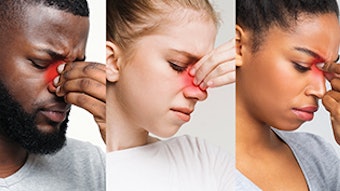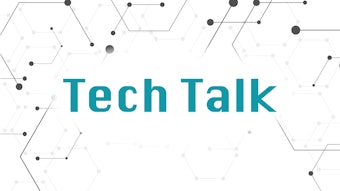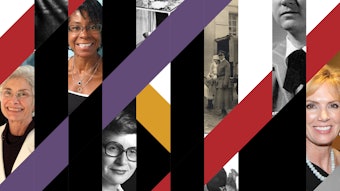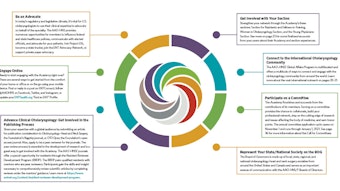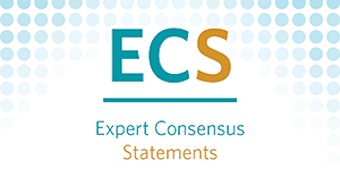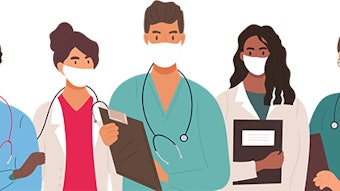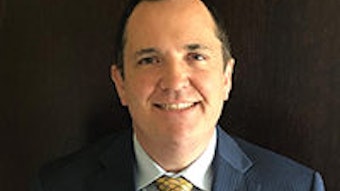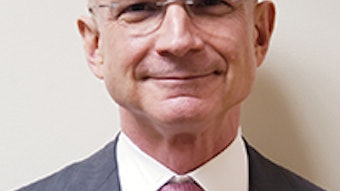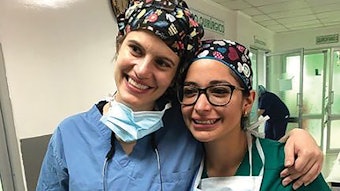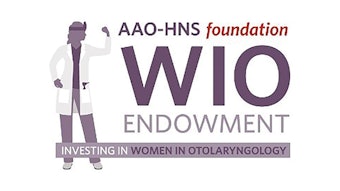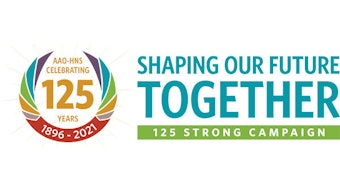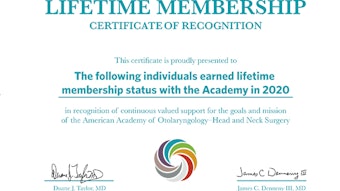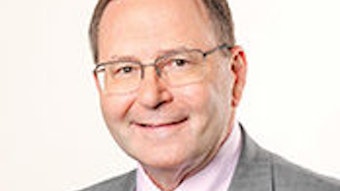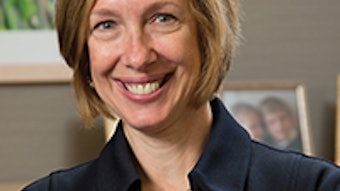Get Involved: Membership Engagement and the Peer-to-Peer Connection
I continue to renew my membership because of the tradition of community membership and the nimble offerings that allow otolaryngologists to rise to meet the challenges of our present circumstances.
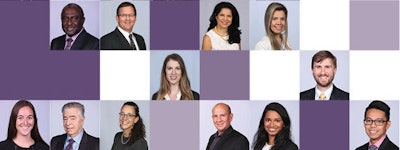

Board of Governors
Karen A. Hawley, MD, BOG Regional Representative
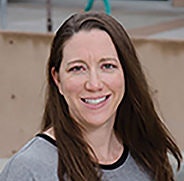
Why did you join the Academy?
I have been a member of the Academy since I was a resident. When becoming a practicing pediatric otolaryngologist, I felt it was important to continue my membership for numerous reasons. The Academy is one of the main pillars of our specialty. It offers a chance to engage with otolaryngologists both within and outside our own subspecialty. Additionally we can engage with physicians who are involved in academic institutions and those who are in group, hospital-based, or private practice. This early in my career, I found it important to develop relationships with colleagues to expand upon mentorship opportunities and to collaborate ideas relative to clinical and academic practice. Every time I attend the Annual Meeting, I meet new people, expand networking, come up with new ideas to bring to my practice, and learn more about what the Academy can offer.
Why did you get involved with the BOG?
I honestly became involved with the BOG somewhat serendipitously. Several years ago, at the AAO-HNSF Annual Meeting & OTO Experience, I dropped by a Boston University otolaryngology reunion dinner and happened to sit next to the BOG chair at the time, Dr. David R. Edelstein. When he learned that I was practicing in New Mexico, he took the opportunity to challenge me to revive the New Mexico Society of Otolaryngology, which had sizzled away at least decades before I started practicing. As a very young otolaryngologist, I found it nearly impossible to let him down. As I learned more about the interconnectedness of state/regional societies and the Academy, I started out by wearing all the hats needed to establish ourselves. I also have an interest in pediatric hearing loss, and I’ve been involved with our state Early Hearing Detection & Intervention (EHDI) committee. It felt like a natural connection between my interests locally and the Legislative Affairs Committee. Our society has a little more member engagement each time we meet, and we managed a successful virtual meeting this spring. I thankfully now share/have offloaded much of the society responsibilities but enjoy my responsibilities as a State Tracker and BOG Regional Representative.
How have you benefitted professionally and personally from your involvement with the BOG?
I have certainly had the opportunity to network with some incredible otolaryngologists and Academy staff, whom I wouldn’t otherwise have had the chance to know if I weren’t engaged in the BOG. The spring BOG Leadership Forum has become one of my favorite meetings and capitalizes on the reasons I’ve continued my membership with the Academy. Becoming involved with the BOG has given me experience to attain leadership roles in my own institution as well.
Lastly and honestly more importantly, I would like to think the otolaryngologists in New Mexico have benefited from my involvement in the BOG and creating our society. New Mexico is a large state, which is mostly rural, with only one academic tertiary center. The society has given us the chance to put faces and people on the other end of the phone when we accept transfers and referrals. It is slowly opening up the lines of communication between physicians who have completely different practices, both in interest and structure. One of our members who has been committed and involved from the start works with the Indian Health Services in rural New Mexico, and he has brought great perspective. I will be up for promotion this year at The University of New Mexico, and I have no doubt my involvement with the BOG will help support this endeavor.

International Advisory Board
Mohammed A. Gomaa, MD, Egyptian ORL Society
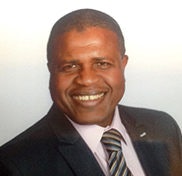
I joined the Academy in 1999 after l finished my two-year scholarship at the University of Oklahoma Health Science Center in 1998. I attended a couple of AAO-HNSF Annual Meetings during my stay in Oklahoma. I was really astonished at the quantity and quality of science that was presented.
After that I decided to join the Academy for many reasons. First the education materials the Academy offers to the world, which include state-of-the-art and cutting-edge science, the latest information and new developments in the field of otorhinolaryngology, practice guidelines of the disputed problems in otorhinolaryngology that benefit the physician as well as the patient, and continued updates on the scientific problems we face in our practice. This in turn improves our daily practice and patient outcomes. These education materials, which are offered to us in different formats, from lectures, home study course, operative videos, etc., are convenient for us to handle at any time and any place.
Second, networking with colleagues from every place in the world. Third, inclusion in Academy activities improve our knowledge and practice. For example, as reviewer for Otolaryngology–Head and Neck Surgery, presenting at the Annual Meeting, or taking part in an Academy committee. Fourth, support. The Academy supports us in our practice and also during the crisis by offering discounts to the Annual Meeting registration with vouchers we can redeem in any activity. The fifth reason is the scholarships that are offered to juniors and scholars.
Why did you get involved with the IAB?
I think the IAB is a good structure after the sunset of the International Otolaryngology Committee, as it works with structured societies and organizations worldwide. These organizations cover thousands of otorhinolaryngology doctors under its umbrella, and instead of dealing with one person, we can deal and talk to hundreds of thousands of doctors worldwide.
The IAB is a good venue for networking with colleagues worldwide, a nice platform for collaboration between different societies in the research and exchange of juniors and scholars, and a good structure for regional collaboration and networking, such as the Middle East Roundtable discussion, etc. It improves our knowledge and understanding of others. I think the IAB can share in endorsing AAO-HNSF guidelines that will improve patient outcomes worldwide.
How have you benefitted professionally and personally from your involvement with the IAB?
Really, the IAB is a good structure for professionals to be involved in scientific and research collaboration between scholars from different parts of the world. I really benefitted from interaction with international scholars as many of them are members of scientific organizations, so I can share ideas with them. Collaboration with other international societies in exchange of ideas during the Annual Meeting and debating hot topics in otorhinolaryngology is reflected on my practice and on patient outcomes.
Also the IAB is a good venue for inclusion in the Academy activities like committees, reviewing applications, and being a peer reviewer for the AAO-HNSF journals. Additionally, the IAB is a good platform for international members to express their thoughts and ideas as well as their needs. I have personally benefited from being involved in the IAB as a presenter at the Annual Meeting, becoming a member of Academy committees and as I present annually in the annual meetings of the Academy, becoming a member in the Academy committees, being asked to serve on the International Editorial Board Meeting of Otolaryngology–Head and Neck Surgery and OTO Open, and leading the Middle East Roundtable discussion. I am really thankful for the international team of the Academy that organizes and leads the IAB into great success.

Section for Residents and Fellows-In-Training
Stefania Goncalves, MD, SRF International Delegate
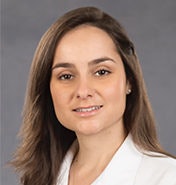
Why did you join the Academy?
My main motivation to join the Academy was my desire to keep my knowledge updated and learn how different specialists approach clinical and scientific questions around the world. Additionally, I wanted to improve my oral presentation skills, so I started submitting abstracts for oral presentations since I was in medical school.
Why did you get involved with SRF?
One of my friends was part of the SRF GC and persuaded me to be actively involved. I certainly do not regret it!
How have you benefitted professionally and personally from your involvement with SRF?
The benefits I have gained after I actively joined the SRF are endless. I made new friends from other residency programs, people that I keep in touch with throughout the year. In fact, some of them have become role models and mentors. Furthermore I understood the relevance of assertive networking in career development, which opened a door to endless opportunities that fit my academic and education interests.
How do you envision your role as the newly created International Delegate in strengthening collaborations with current international members and helping to recruit new international members?
My main goal is to reach out to the international community through different platforms, creating bridges of communication, facilitating networking, and providing opportunities for education and professional development. This initiative started several years ago collecting the information on international otolaryngology programs, which is still being expanded. Subsequently the International Young Physician’s Forum and the Member Match Program were created to bring the international community together to interact and exchange experiences. This year is particularly challenging since we will not count on the usual in-person setting; however, a virtual forum is being organized to educate and motivate otolaryngologist worldwide during these difficult times. I want to thank the SRF for this opportunity and Drs. Bonilla, Zafereo, and Stolovitzky for all their support throughout this journey.

Women in Otolaryngology
Suman Golla, MD
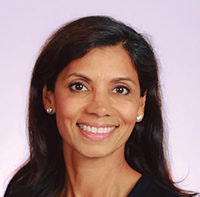
I joined the Academy because it is an amazing organization which is all-inclusive of its reach.
That is, the Academy “listens” and attempts to address the voice of the medical student, resident, recent otolaryngology graduate, junior-attending, senior-attending, and those in private practice as well as those in academic medicine. Also impressive is its consideration of the needs of the general public in terms of education, treatment options, and community service.
Why did you get involved with WIO?
Initially I became involved with the Women in Otolaryngology Section (WIO) as they represented women whom I wanted to emulate both personally and professionally. The founding leaders of this great organization were amazing role models.
How have you benefitted professionally and personally from your involvement with the WIO?
I have benefited both personally and professionally with the amazing resources and opportunities within WIO—that is with educational and informative lectures, access to a rich network of fellow female and male otolaryngologists, and leadership courses.

Young Physicians Section
J.P. Giliberto, MD
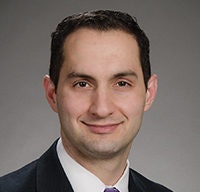
Why did you join the Academy?
Truthfully as a resident, I joined the Academy because it was free. But that initial entry into the Academy exposed me to the national and international otolaryngology community, and I immediately felt at home. The Annual Meeting was the only place where you could learn a new technique, connect with friends, and be inspired by legends of the field in a single morning. With the upheaval of the pandemic, I have come to appreciate the new, modern offerings of the Academy, like ENTconnect, frequENTcy podcasts, and the virtual education and CME offerings. While I say joined because it was free, I continue to renew my membership because of the tradition of community membership and the nimble offerings that allow otolaryngologists to rise to meet the challenges of our present circumstances.
Why did you get involved with YPS?
As I reflect on my motivations to get involved in the YPS, I would say they were two-fold, though they were not obvious at the time. First, the YPS has offered me a fresh perspective from colleagues beyond my subspecialty. This expanded circle has provided unique research collaborations, insights, and friendships, which otherwise may not have been. Second, through the YPS, we were able to collaborate with leadership to reinvigorate some of the products and offerings of the Academy to better meet the needs of our section members.
How have you benefitted professionally and personally from your involvement with YPS?
Directly as a result of my work with the YPS, I can point to projects that I hope have added value for members and colleagues, such as the practice management toolkit, broadening the reach of frequENTcy podcasts, and even the creation of the Peloton group #pelOTOs. But it is the connection to the broader ENT community that has helped me persevere through the challenges of this year. Whether it is the check-ins from colleagues that began during the initial weeks of the pandemic, members asking the questions I want to know the answers to on ENTConnect, or the Zoom-bombs from everyone’s kids at the end of a successful YPS Zoom call, these small nudges keep me going. Just as the high fives from my #pelOTOs spur me onto my personal record, so too will these nudges help me rise to today’s challenges and support me when I cannot.

